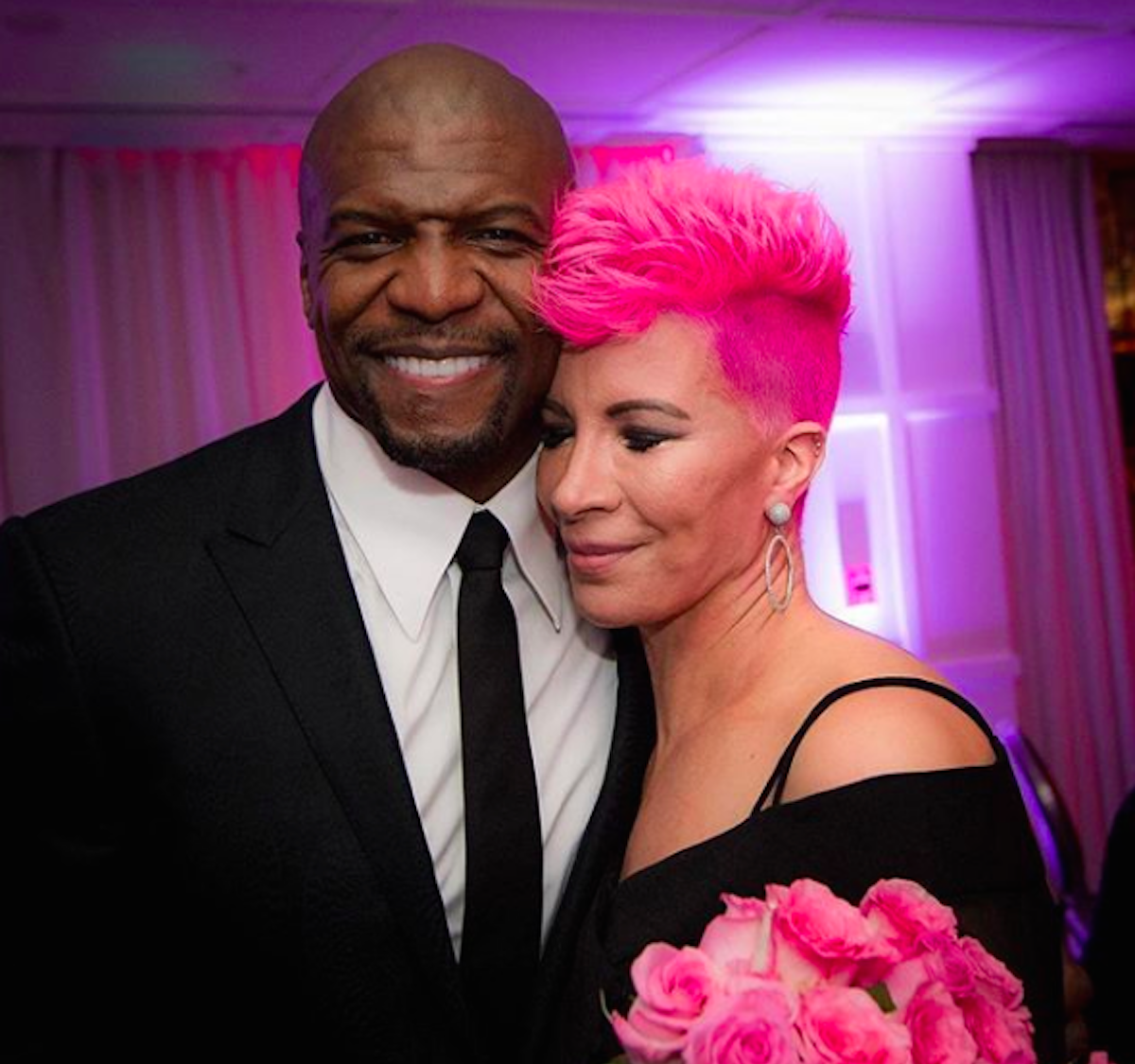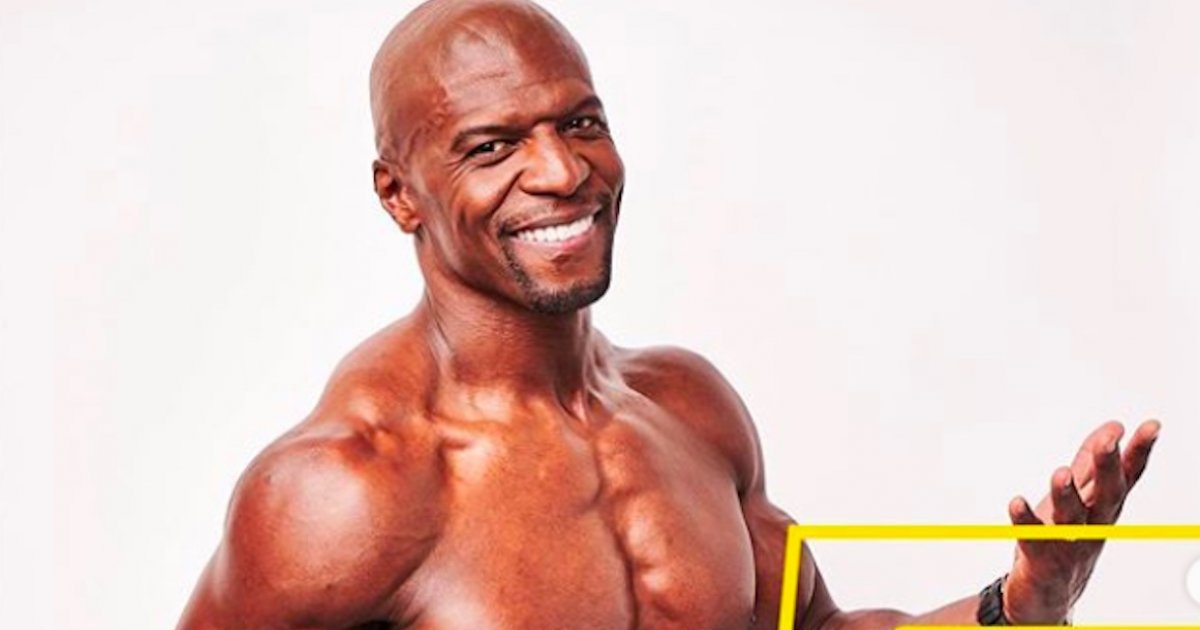Is this what 52 looks like? To celebrate his birthday, Terry Crews is sharing the workouts that sustained him as he cared for his wife, Rebecca, after her double mastectomy.
While it’s the rare caregiver who can match Crews’ intensity — or jaw-dropping results (below) — he says he wasn’t always in the phenomenal shape he’s in today.
Read More
View this post on Instagram
I EXIST TO SHOW YOU WHAT IS POSSIBLE IN 52 YEARS REMEMBER THAT 💪ðŸ¾ðŸ”¥
What snapped him out of it? Crews, who once played in the NFL for the Los Angeles Rams, says it was “something I overheard, the phrase was ‘It takes 21 days to make a habit.”‘
But it was Rebecca who inspired him to take action: “Then my wife, in the morning, came up to me and pinched my back fat.”
Terry Crews was working out on the treadmill when his wife, Rebecca, stopped him to share the shocking news, “Honey, I have breast cancer.”
Now, Crews says, he makes fitness a priority. “That 21 days has turned into 21 years. I’ll go to bed at 8:30, 9 o’clock just to get that 4 am [workout]. I have never ever taken steroids,” he says, responding to accusations. “I’ve been intermittent fasting for 8 years.”
A Breast Cancer Diagnosis During COVID-19
Crews was devastated by the news of his wife’s stage 1 breast cancer diagnosis. "Our world kind of came crumbling down," the former “Brooklyn Nine-Nine” star told SurvivorNet. As quarantine orders descended, Rebecca Crews underwent a double mastectomy.
“The wonderful thing is my wife is a warrior and she decided to become very proactive with her treatment,” Crews told Film-News.Co.UK. “Once we got that order [to quarantine], I got to be her nurse and was taking care of her bathing, the laundry, and cooking.”

“We got closer even though she doesn’t like my cooking that much!” Crews joked. “I don’t know any other time in my career or in my life where I would’ve had the time to do this. I tell her now in a romantic way that I think the world shut down so that I could take care of her.”
Rebecca Crews is now cancer-free and Crews hopes to encourage others to embrace fitness: “I’ve heard so many negative things in my life. People say, ‘You can’t do this’. I’m like, ‘yes, I can’. You develop this thing called ‘unembarrassability.'” he explains.
“No one who is really good at what they’re doing right now, was good when they started,” Crews says. “So don’t be embarrassed. You’re human.”
Caregiver Burnout Is Real
Allison Applebaum, Ph.D. a psychologist at Memorial Sloan Kettering Cancer Center who counsels cancer patients and their caregivers, cites evidence that mind-body therapies like yoga and meditation can help relieve depression, anxiety, insomnia and improve the overall health-related quality of life for caregivers.
Many of these support programs now use telehealth technology, making them more widely available.
Justine Almada knows first-hand the toll that cancer takes on the millions of people who act as caregivers — and it’s not always an easy job.
Applebaum believes more should be done to include the caregiver under the patient-care umbrella. For example, she’d like to see distress screening, which is standard in patient care, offered to caregivers, as well.
"Caregiver-focused distress screening programs have the potential to improve the quality of care for all those affected by cancer," Applebaum shared in the ASCO Post, published by the American Society of Clinical Oncologists.
Cancer centers typically offer the support of social workers, support groups, and other therapy programs that can help — but only if caregivers know about them.
Ultimately, she notes, caregiver burden isn't just about caregivers. It can also impact patient outcomes. Change will come once caregiver burden is recognized as a national health-care issue. And, because cancer impacts the whole family, she encourages a shift in thinking "from patient-centered to family-centered care."
“Remember To Take Care Of Yourself”
When Patrick Dempsey's mother was diagnosed with ovarian cancer in 1997, her 17-year cancer journey affected the entire family.
Based on his own experience, the actor and cancer-advocate recognized the need for family-centered support services and co-founded The Dempsey Center, which offers a range of classes, workshops, and programs designed specifically for the spouses, children, and caregivers of cancer patients
In a conversation with SurvivorNet, Dempsey offered advice to others who act as caregivers.
"We went through all the ups and the downs, and went through the entire experience," Dempsey said. "With the recurrences, it was [hard] to stay optimistic."
Actor Patrick Dempsey co-founded The Dempsey Center which offers complementary services, like group therapy, for cancer patients and their caregivers.
Through the experience, he said, the whole family learned how important it is for caregivers to keep their own health mental and physical in mind. "Remember to take care of yourself," Dempsey said. "If you're not taking care of yourself, it's going to be harder for you to take care of the person you're in charge of.”
“My mother was a fighter,” he notes. “That gave us energy as well, and she got energy from us by being there. … I think that was the thing that was surprising. Her resilience gave us strength … and that's a part of us now."
Learn more about SurvivorNet's rigorous medical review process.

